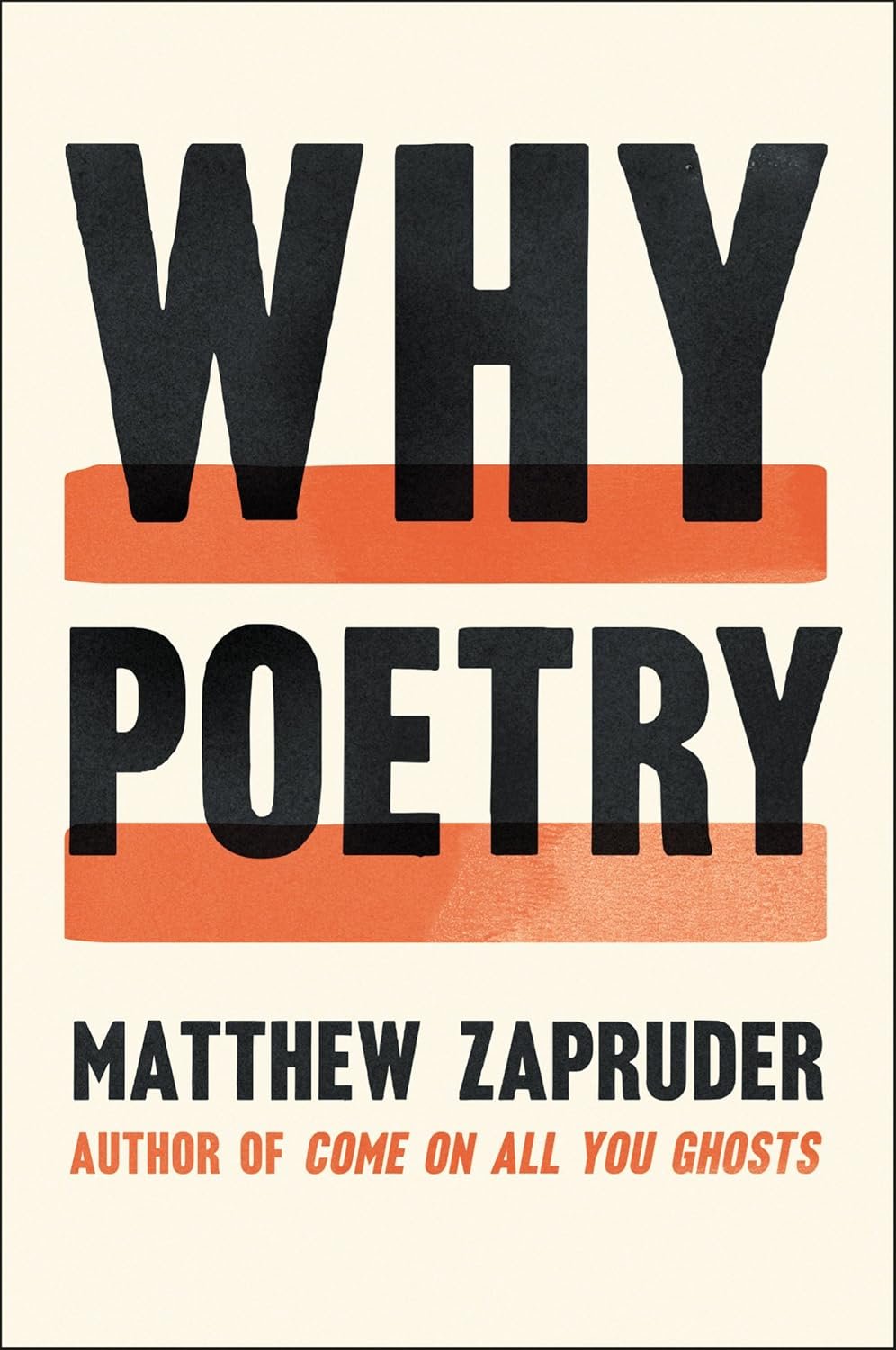
29 Sep Unlocking the Heart: A Deep Dive into Why Poetry Matters
Book Review: Why Poetry by Matthew Zapruder
As someone whose relationship with poetry has ebbed and flowed over the years, I was drawn to Why Poetry by Matthew Zapruder with a tantalizing mix of hope and skepticism. Would this book finally bridge the gap for me between sheer admiration and utter confusion? With a title that read like an enthusiastic manifesto, I dove in, eager to explore what poetry could offer beyond my high school classroom experience.
Zapruder’s infectious passion is palpable from the outset. He argues that our traditional approach to poetry—often marked by analytical dissection and an insistence on "finding the meaning"—only serves to alienate readers from the beauty of the form. Instead, he champions a more intimate experience, urging us to embrace the emotional core of poetry. He writes, “The experience of getting close to the unsayable and feeling it…by words themselves.” This sentiment resonates deeply with me, as I’ve often felt poetry to be a doorway to joy, wonder, and even discomfort—places words can lead us, but perhaps we’ve been taught to shy away from.
Zapruder’s prose flows in a conversational, almost lyrical manner, dismantling the barriers that intimidate many aspiring readers. He does this without undue pretense, making the craft feel accessible while also rich with depth. The author vividly articulates his own journey with poetry, demonstrating how it became essential to his life. His invitation is clear: anyone can find their way into poems, and it doesn’t require a PhD in literature.
One of the highlights for me was his critique of educational systems that treat poetry as a puzzle needing to be solved. Far from being simply a collection of symbols and metaphors, poetry is a living art form meant for exploration and emotional engagement. As one reviewer noted, “Zapruder argues that poetry should instead be introduced as a doorway into an imaginative space…” This framing was enlightening and aligns with my belief that poetry should ignite curiosity rather than confusion.
The book is peppered with close readings of various poems, including works by Whitman and Keats, illustrating his points in a way that feels refreshing rather than stifling. While some may find his choice of classic poets a bit of a hurdle—particularly for those deterred by these same authors in their school days—Zapruder’s skill at interpretation makes these timeless works feel approachable. He conveys admiration for the craft without pretentiousness, coaxing readers to find a personal connection rather than a "right" answer.
However, I can understand how some may grapple with the notion that it is all on the reader to relearn how to appreciate poetry. This stance might turn off those still struggling with their initial skepticism. It’s a fine line between expanding accessibility and implying that enjoyment hinges solely on readers’ efforts.
In conclusion, I’d recommend Why Poetry not only to fellow poets and literature enthusiasts but also to anyone who has ever felt intimidated or disconnected from the world of poetry. It’s a clarion call for a reengagement with the craft, and it reaffirms how poetry can enrich our lives. For those ready to experiment with meaning and embrace the exploration, this book serves as a welcoming companion. For me, it reignited a flicker of love for poetry—a love I look forward to nurturing again.









